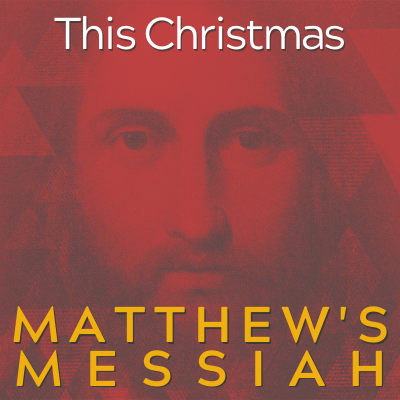SERMON SUMMARY
Today we continue our series on the Christmas story. Two weeks ago we looked at the mothers in Jesus’ genealogy and last week we focused on some of the fathers. Today we consider the wise men who traveled a great distance to worship the newborn King of the Jews.
What do we know about the wise men? We don’t know as much as we’d like. All we know is that there were more than one, they came from the east (probably either Arabia or Babylon), and they studied the heavens, believing that the affairs of history could be discerned through the stars. These wise men were aware of Jewish Messianic hope because God had dispersed the Jews throughout the Arabian Peninsula as a judgment on their sin. For example, Babylonian King Nebuchadnezzar appointed the Prophet Daniel as ruler over his nation’s magi! Daniel’s calculations which pointed to the very time Christ would be born became part of ancient Near Eastern literature. By this time in history there was a general expectation throughout the East that a great king was about to arise among the Jews. So when a star appeared, these Gentile wise men saw it as sign that this king had been born.
Does the Bible endorse astrology? No, it doesn’t. Astrology assumes that stars are active agents which cause earthly events and promotes the worship of stars. The Bible teaches that stars sometimes convey messages about earthly events (see Psalm 19:1-4, and Romans 10:17-18 which quotes it), but it prohibits worship of anything but the One True God (Job 31:26-28). Luke 21 tells us that God will indicate Jesus’ return by observable signs in the heavens. (But what about that star they saw? Is there any evidence for it? Indeed there is—go to YouTube and search “Rick Larson” and “Bethlehem Star”!)
When the magi arrived in Jerusalem and asked about the newborn king, it caused quite a stir. The current king, Herod, was a cruel and paranoid man, quick to dispose of any threat to his power—even his wife and two sons. (A Roman philosopher commented: “It’s better to be Herod’s pig than his son”). In his paranoia, Herod gathered his advisors and inquired where the Scriptures indicated the Messiah would be born. Without hesitation they cited Micah 5:2, and from this one verse Herod learned that the Messiah would be born in Bethlehem (the ancestral home of Israel’s beloved King David), will be of the tribe of Judah, and that he will be the eternal ruler of Israel! Herod’s next move was to identify and kill this rival king. Based on the star’s first appearance he could calculate the child’s approximate age. But the magi, warned by God, refused to assist Herod, and so he simply killed every boy two years old and younger! Herod may have been actively opposed to Jesus, but the religious leaders of the day were too disinterested to make the five mile journey to observe the fulfillment of age-old Jewish messianic hopes! We see the same responses today: some seek Christ, some oppose him, and others simply ignore him. What’s your response?
When the wise men discovered the Christ child they fell down and worshiped him, giving him valuable and richly symbolic gifts: gold—a gift appropriate for a king; frankincense—the gift fit for a priest’s duties; and myrrh—used mainly to embalm the dead! And Jesus indeed is a king—the King of Love—just not the political one the Jews would have preferred. Jesus indeed is a priest, reconciling us to God through the sacrifice of his own body.
What do we learn from these wise men? Like them, we should…
[1] Assume that God wants to communicate his will to us. If you don’t believe God wants to communicate his will to you, you won’t look for it. And if you don’t look for it, you won’t find it. Today God speaks to us most clearly through the Bible, but he also can use people and circumstances.
[2] Follow the light God gives you. Respond to the light you have and God will give you more.
[3] Consult others whom you believe have greater wisdom than you. That is what the wise men did.
[4] Consult the Scriptures. The magi consulted the book of Micah to discover where the Christ would be born. In the Scriptures we too can find a wealth of wisdom to guide us along life’s path (begin in the Book of Proverbs).
[5] Obey God each step of the way. It does no good to know the right thing to do, and then not to do it. Obedience opens the door to God’s greater blessings.
[6] Worship is the proper response to our Creator-Redeemer. The wise men immediately fell to the ground in worship. They recognized the presence of greatness, of deity. God created you to worship. The wise men did what they were created to do. And today truly wise men still worship him.
[7] True worship involves sacrificial giving. The wise men offered Christ the best that they had— gifts of gold, frankincense, and myrrh. We must too. And know that no sacrifice we make for him will never equal the sacrifice he made for us at the cross.
APPLICATION / CHALLENGE
Apply the seven principles of wisdom illustrated by the magi (see Sermon Summary).
TAKE ONE STEP
Each week, write down one doable concrete step of obedience, small or large, that you will put into practice this week. (James 1:22: “But prove yourselves doers of the word, and not merely hearers who delude themselves.”)


